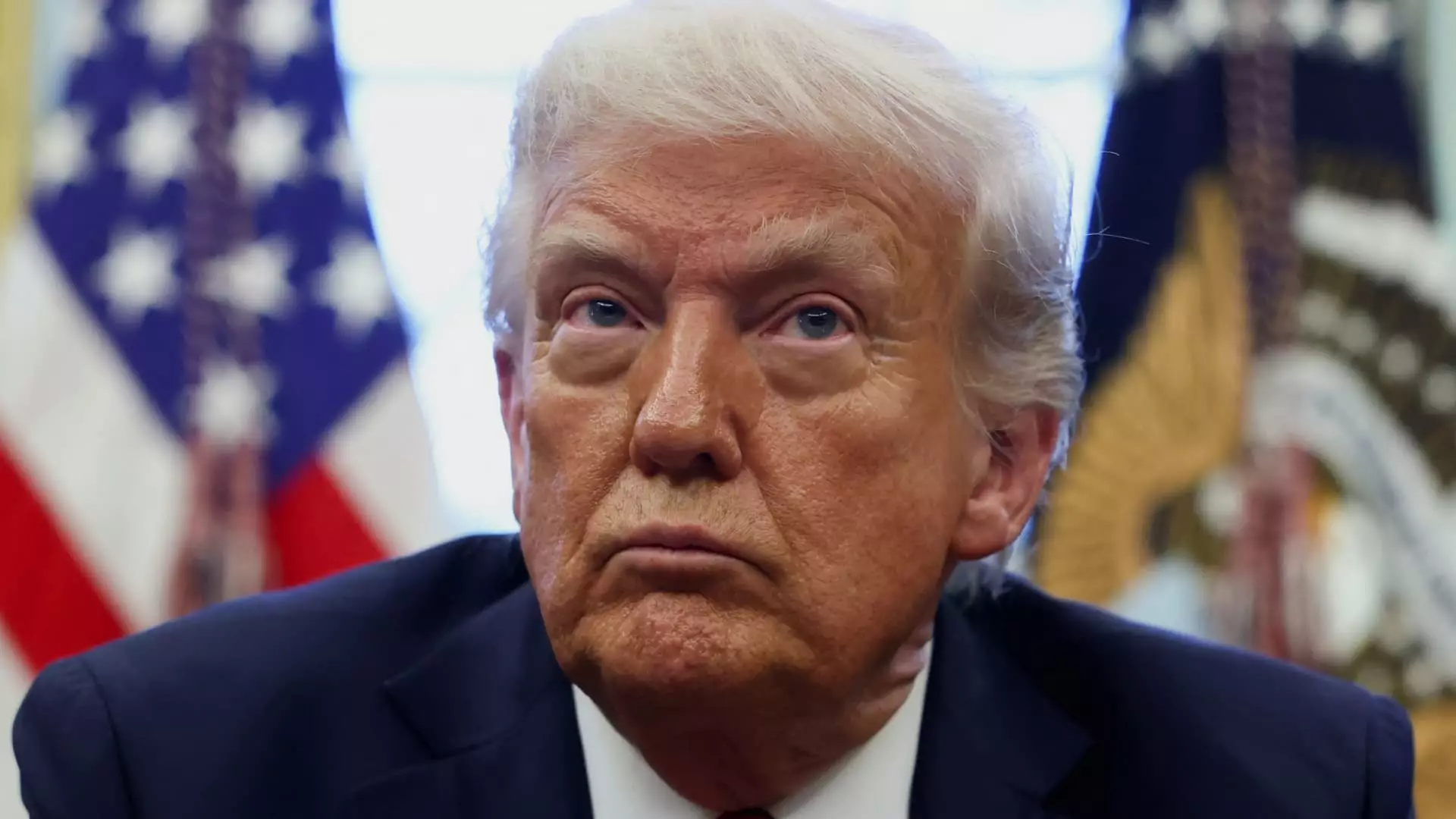In a bold and reckless maneuver that echoes the chaos of his administration’s earlier decisions, former President Donald Trump has proposed a sweeping change to how federal workers are classified. This shift, aimed ostensibly at making the federal government more efficient by severing the ties of job security, poses a serious threat to the integrity and independence of the civil service. Trump’s intention to reclassify tens of thousands of federal employees into the nebulous category of “schedule policy/career” stands as a glaring example of how governance can be undermined by political whims.
This change, initially warned against during Trump’s presidency through the controversial Schedule F directive, raises urgent questions about the future stability of the federal workforce. By branding employees involved in any form of policy-making as “at will” workers, Trump’s administration opens the floodgates for arbitrary firings. The vast majority of federal employees, involved in the daily tasks that keep government afloat, could suddenly find themselves vulnerable to dismissal not based on performance, but on political expediency. Experts in public policy, like Don Moynihan from the University of Michigan, have pointed out the expansive reach of this new classification; it could encompass a staggering portion of the 2.3 million federal workers, effectively rendering job protections meaningless.
The Charade of Business Efficiency
Trump’s professed goal of running the government “like a business” is not just misguided, it’s perilous. The value of a civil service lies in its commitment to continuity, responsibility, and the delivery of services without the disruptive influence of political favoritism. Governments are not corporations, and trying to apply a business model to a fundamentally different entity undermines the very principles of democracy. Employees who are dedicated to ensuring policy is fairly implemented will now live in fear of their jobs being compromised by the volatile nature of politics. This, far from increasing efficiency, erodes the trust citizens have placed in their government.
Moreover, the recent alliances formed between Trump and individuals like Elon Musk underscore a growing trend—one that seemingly prioritizes the dismantling of established governance frameworks in favor of profit-driven narratives. Their claims of a bloated federal workforce filled with waste are little more than veiled attempts to justify massive layoffs and the reduction of public services that serve millions. The fact that over 260,000 federal employees have already faced termination or early retirement since the onset of Trump’s presidency only serves to highlight the precariousness of public sector employment under his agenda.
The Voice of the People vs. Political Gamesmanship
The outcry from labor leaders, such as Everett Kelley of the American Federation of Government Employees, frames this political maneuver as an assault on merit-based hiring and professional standards. Kelley’s pointed critique emphasizes a fundamental truth: the government should be a space where competence reigns supreme, untainted by the fickle nature of politics. The imposition of partisan considerations in civil service employment threatens to derail decades of progress made in establishing a fair and unbiased hiring process.
Trump’s recklessness reveals a dangerous belief that the pursuit of political agendas can override the need for stability in public governance. As we continue to observe the disassembly of federal protections, it becomes clear that the ramifications extend beyond mere job security; they touch the very essence of democratic function. The question remains: How much longer will we sit idle while political gamesmanship jeopardizes the hardworking citizens dedicated to public service? The time for critical scrutiny has arrived; we must challenge these dangerous shifts head-on before they become irreversible.


Leave a Reply